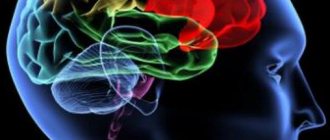Intelligence in psychology and not only is considered as a complex of mental and mental abilities. In general, its definition is as follows: it is the mind, the quality of the psyche, expressed in the ability to cognition, to realize something, to learn, to remember. The functions of intelligence are based on experience and its quality. An intelligent person is one who is able to understand and apply not only standard, but also non-standard ideas. He can use knowledge to control the world around him.
You can learn more about what the mind is from the article. We also show development methods and answer the question of how to determine your own IQ (intelligence quotient).
History of the study: basic and important points of view
Speaking about the historical milestones of the concept of “intelligence,” it is worth noting the achievements of some researchers and scientists. There are many theories, approaches and schools, but it is inappropriate to consider any one or any one as the only true one without immersing yourself in the theory.
Noteworthy in the history of the study is the experience of the creators of special tests for assessing IQ - J. Cattell and L. Theremin . But their main merit is not that they created informative methods for identifying intellectual abilities. They were among the first who managed to substantiate the absence of dependence of the development of intelligence on the conditions in which the formation of personality takes place. Later, all their evidence was destroyed, and their work was declared invalid.
In a sense, the opposite point of view was expressed by A. Binet and T. Simon . In their works, they consider the mind as a complex of abilities based on experience, as a set of achievements in mental development.
The work done by D. Wexler . He was able to show that the reasonable behavior of every person is based primarily on the influence of intellectual factors.
From the point of view of child psychology, the contribution made to the study and analysis of the problem by V. Stern . He was able to prove that the development of children's mental abilities is influenced by the quality of relationships with people around them. Not only with adults, but also with peers, for example, in kindergarten or at school.
Let us present the points of view of other researchers, figures not related to science, their views and approaches to the definition of the analyzed concept:
- Thomas Aquinas viewed the divine mind as an essence existing “in parts” in each of the people. He believed that human mental abilities are limited only by the sphere of the mind, which contributes to contemplation and comprehension of something;
- L. S. Gottfredson viewed intelligence as a unique mental ability. She said that it included the ability to plan, solve various problems, think, learn and study;
- F. N. Ilyasov considers the IQ indicator as an expression of the ability of a material system (a person for him is a material being) for independent learning, for constructing various programs and activity algorithms.
of Ch. Spearman should also be noted . He managed to prove that all mental abilities are connected and have a static connection. He justified this by the fact that if a person is capable of solving one conditional group of complex and non-standard problems, then he can easily solve others, even if effort is required.
Thus, we can say that the history of the study of the concept is centuries-old. The problem was studied by both scientists in antiquity (Thomas Aquinas, XIII century), and scientists of the 19th-20th centuries. (C. Spearman and others). There are also many modern researchers who continue the work begun centuries ago.
Do you think the topic deserves close attention?
Yes! There is so much unknown... And the sphere of intellect is part of this unknown.
100%
No. There are much more important and pressing problems. First you need to deal with them.
0%
Can not say. I don't realize the importance of such research.
0%
Voted: 4
Danger of mental retardation
By and large, mental retardation does not pose a threat to the life and health of either the child himself (unless it is a consequence of a serious illness) or those around him. In this case, it is more correct to talk about the difficulties and inconveniences that may arise for children with mental retardation and their environment.
Children with mental retardation find it more difficult to adapt to society and have learning difficulties. If mental retardation is not corrected, this can lead to loss of educational motivation and social maladjustment. Every year it will be more and more difficult for the child to be with peers, he will remain in the same class for the second year, his behavior will continue to remain at a low level of development.
As for others, if a child with mental retardation ends up in a regular class of a general education school, and no corrective measures are applied to him, then this may interfere with the learning process of other children. Children with mental retardation are often distracted in class and can distract the teacher and other children. They may play during class or get up and walk around the room without the teacher's permission. All this complicates the educational process and can cause a negative attitude towards such a student both from teachers and from classmates.
That is why it is recommended to send the child either to special classes, or to carry out correctional measures before the start of education, so that the child himself can easily adapt to the school environment and does not complicate the learning process of other children.
Basic functions of intelligence
Let's highlight 4 main functions and tie them to real life examples. This is necessary to simplify understanding of the essence and content of individual functions. Here they are:
- Promoting the occupation of certain positions in different communities, as well as the acceptance of roles and statuses. Without developed intelligence, no person can adequately take on certain responsibilities. An example is a man’s acceptance of the role of father after the birth of a child. If the IQ is not high enough, the tasks associated with fatherhood will be solved unsatisfactorily.
- Gaining knowledge, mastering skills, development . Everything here is exactly the same as in the case of the first point. Let's show everything with an example: an intellectually developed person is capable of learning, can independently search for information, process and systematize it. It's different when it comes to people with weak minds.
- Demonstration of talents and realization of potential. The quality of mental abilities determines how fully a particular person reveals his own talents and realizes his potential. Example: a highly intelligent person decides to master a new field of activity. It comes easy to her. A lack of intelligence in this situation will lead either to difficulties in business or to the absolute inability of the individual to use his own resources in order to achieve the goal.
- Self-realization . This is almost the same as point three. But here it is more fair to talk about the quality of abilities and the “strength” of the impulses of a particular person in terms of solving problems that stand in the way of his development, including personal development. A simple example: a high school student sets himself the goal of finishing the year “excellently,” that is, getting straight A’s. If his IQ is sufficient, everything will be fine. Otherwise there will be problems.
So, we can say that without developed intelligence, any activity, any thought is something that will not have a productive result or implementation. Neither thoughts nor actions can be effective and efficient without developed intelligence.
Which feature do you think is most important?
First. It seems to me that roles and statuses need to be perceived adequately to their significance.
0%
Second. Without knowledge and development, none of us could exist in the world in which we live.
100%
Third. Talented people make the world a better place.
0%
Fourth. I think self-realization is very important.
0%
Voted: 2
How to identify mental retardation disorders: signs and symptoms of delayed psycho-speech development
ZPRD, if it is caused by congenital factors, can begin to manifest itself at a fairly early age of the child.
Signs of delayed psycho-speech development:
- 4 months : the child does not respond to the words and gestures of the parents, does not smile (these are also symptoms of autism);
- 8–9 months : absence of babbling (repetition of identical syllables);
- 1 year : the child is very quiet, makes almost no sounds;
- 1.5 years : does not speak simple words (“mom”, “give”) and does not perceive them, does not understand when addressed by name or with a request; may also not be able to chew;
- 2 years : knows and uses a very limited set of words, does not repeat new words after others;
- 2.5 years : uses no more than 20 words, cannot form a phrase out of two or three words, does not understand the names of body parts and objects;
- 3 years : cannot form a sentence on his own, does not understand simple stories from adults. Speaks too quickly, “swallowing” endings, or too slowly, drawing out words. In response to an adult’s address to him, he can repeat what was said verbatim.
A child with PVD at any age may experience increased salivation and an always slightly open mouth. Such children are characterized by hyperactivity, increased aggressiveness, inattention, fatigue, and poor memory. The child thinks very slowly, has an undeveloped imagination and a narrow range of emotional manifestations, experiences great difficulties in communicating with peers, and therefore avoids them. Physically, such children are also poorly developed and may even have cerebral palsy.
Symptoms of ZPRD also manifest themselves in organic changes. When examined using electroencephalography (EEG) or the evoked potentials (EP) method, disturbances are detected in the left hemisphere (it is responsible for speech development).
In general, the longer a child experiences difficulties with speech, the more his mental and mental development is delayed. After all, the older children are, the more information they receive from what they are told in dialogues with others. This is another reason to start treatment for PVD as early as possible.
Types of intelligence in psychology
There is one notable classification. This is Gardner's classification of intelligence. He is a proponent of the concept of multiple intelligences.
The scientist was able to identify the following 9 species:
- Visual-spatial. This is about a vivid imagination, the ability to fantasize and navigate in any situation.
- Linguistic. It's about the love of reading and communication. People with this type of intelligence have developed talents in preparing essays and the ability to study foreign languages.
- Musical. In this case, the following areas are developed: perception of music and rhythm; ability to sing and master musical instruments; sense of poetry and tact. People with success in teaching music and conducting are most often found with this type of intelligence.
- Interpersonal. It’s about the ability to build communications, understanding people’s moods, and productivity when working in a team. Often people with such abilities become leaders, psychologists, and diplomats.
- Intrapersonal. In this case, everything is the opposite of what is written in paragraph four. However, the high ability for reflection in people with such a dominant type of mind makes them excellent writers, philosophers and more.
- Naturalistic. This is about a high interest in the world around us. This is about the craving for biology, chemistry, physics. Naturalists are often experimenters, geologists, and ecologists.
- Bodily-kinetic. It is characteristic of people who are able to convey emotions through “bodily means.” High coordination, developed motor skills, craving for sports and constant activity - all this is about them.
- Logical-mathematical. This type is accompanied by the ability to quickly analyze data, visualize it, reason logically and quickly remember information. People with it often become mathematicians, programmers, and engineers.
- Existential. There is an opinion that this species is a priori characteristic of people. It is expressed in the ability to think.
Initially, Gardner identified only 8 types. They were not assigned an intrapersonal type. However, as his activities progressed, the psychologist decided to revise the classification under pressure from colleagues and supplemented it. We have presented a later version, although it is most often said that in fact Gardner is the author of the classification of eight types of intelligence. This is not entirely true.
There are two notable groups of intellectual abilities, identified by scientists based on the criteria of “the ability to understand people’s behavior” and “the ability to understand emotions and feelings.”
Emotional intellect
It is usually considered as a set of knowledge and skills, an individual’s abilities in terms of recognizing feelings and managing emotions. If the emotional sphere is sufficiently developed, a person will be capable of understanding intentions and motivations. Both our own and others. It is common to talk about emotional intelligence as a flexible skill, that is, it can be developed and formed.
There is an opinion that the level of development of the emotional sphere of intellectual abilities determines how successful a person will be in life and in his career.
If this type of mind is poorly developed, if a low level of IQ is observed in this direction, the person will have the following qualities:
- irritability;
- conflict;
- indecision.
We can say, therefore, that if the emotional component of general IQ suffers, then the person experiences difficulties communicating with other people and is indecisive. However, this kind of deficiency can be compensated for either by developing the appropriate skills or by “pumping up” the social components of intelligence.
Social intelligence
The ability to interact in society and the behavior of the individual depend on how developed it is. A socially intelligent person is able to correctly understand people. He has skills, in a sense acquired, in terms of interpersonal interaction, as well as in terms of social adaptation.
People in whom this type of intellectual spectrum ability is well developed are characterized by the following qualities:
- the speed of making judgments about others;
- development of analytical skills;
- depth of understanding of things, objects and phenomena, people.
It is generally accepted that if a person has equally and well developed emotional and social spheres of intelligence, then he is almost a genius. But this is a rather controversial statement. Achieving success and being an effective person capable of self-development does not mean having outstanding IQ scores.
Which of the psychological types shown is typical for you in your opinion?
It seems to me that it is emotional. The description fits.
0%
I think it's social. I understand people quickly and easily, have good analytical skills and have a deep insight into what interests me.
66.67%
I think that in my case everything is approximately at the same level.
0%
I find it difficult to answer.
33.33%
Voted: 3
ZPRD with elements of autism
As a result of malfunctions of the central nervous system or the impact of severe infections on the child’s body, not only speech and mental development delays can form: in some cases, the disease is accompanied by signs of autism.
Autistic traits in a child’s behavior:
- Does not enter into emotional contact with people, does not smile, does not reach out to parents.
- Prone to frequent attacks of aggression, when he is dissatisfied with something, he can direct this aggression towards himself (biting himself, hitting himself).
- Stereotypical behavior: may sway for a long time in one place or walk in a circle, twirl one object in his hand, tends to place objects in a row, reacts negatively to any changes.
- Does not know how to play with toys, uses them in his own way, may be committed to only one toy or part of it.
- Avoids society, does not know how to interact with peers.
Levels of intellectual activity
It is customary to distinguish 3 intellectual levels, which, by the way, have been and are being considered by many scientists who have devoted themselves to developments in determining the IQ indicator.
Each intellectual level presented below is characterized by unique features. Let's describe them:
- Stimulus-productive level . In this case, mental activity depends on how strongly external factors influence the personality. We are talking about incentives and the productivity of reactions to them. At this level, it is fair to speak of any act of mental activity as limited by initially received ideas about something. At the same time, a person is capable of solving various kinds of problems, but there is almost no coherence and consistency in these decisions: everything is carried out in a formulaic, sometimes mechanical way.
- Heuristic . Here the matter concerns spontaneity in cognition, which often ensures the effectiveness of mastering and understanding various patterns. At this level, a person gains the ability to formulate general ideas from disparate problems and phenomena. At the same time, she herself begins to identify various patterns and find explanations for them.
- Creative . This level is the highest. Here the individual becomes an analyst, capable of solving even the most complex problems. Here, at the cost of effort or without it, she easily “gets to the bottom” of all things, objects and phenomena.
Signs of High Intelligence
It is believed that the most obvious signs that everything is fine with a person’s intellect are the following:
- honed professional skills , the ability to learn new skills without effort. If we talk only about the professional sphere, it is inappropriate to use the concept of “intellectual”: even a person who does not have an outstanding mind can become a professional in this or that matter. It's about mechanicalness, about remembering. This is about a pattern due to which long-term practice of something almost always leads to at least good results. Such qualities contribute to the fact that any adaptation for a person is always an extremely easy adaptation;
- the ability to concentrate attention on what is important, switch it to necessary things and keep it on them. Inattention and absent-mindedness are considered as signs that something is wrong with a person’s IQ;
- developed self-control . At the same time, a person can control not only his own actions and actions, but also, to some extent, influence the emotions, feelings, and behavior of people around him;
- sense of humor adequate to reality . The point is not that a person values and encourages only intellectual, for example, humor. It’s exclusively about what he realizes, literally senses and senses the line of appropriateness. In this case, a person can equally like “dark” jokes and those that require mental effort to understand. But in any situation, he first of all, on a mechanical level, evaluates the appropriateness. If a particular act of humor is not appropriate, there will be no laughter. There will only be censure, albeit silent.
Which parameter indicates “backwardness”?
There are several such parameters. Of course, it is more advisable to use tests and rely on the opinions of researchers, but we can identify the following group of signals that IQ is at an insufficient level. It doesn’t have to be low at all. We are talking exclusively about the lack of development as such.
Here are the symptoms:
- suggestibility . It can be explained by the fact that a person is simply not capable of going, as they say, his own way. It is easier for him to listen to others, to act as others act. It’s easier for him to follow the beaten path;
- statement . This is almost the same as suggestibility, but in the context of activity and decision making. Even if a person decides for himself that this or that path will be the only correct one for him, for example, he can be unsettled by citing the action or opinion of another “authoritative” person as an example;
- poor vocabulary . Poor vocabulary is often linked to problems with memory and learning. This is one of the signals of low intellectual abilities. The simplest example, typical of undistinguished youth, is the use and abundance of words and phrases in speech: “well”; "type"; “as if” and so on. In the worst cases, young people use 5 significant words per 10 words. Everything else is just verbal garbage.
- tendency to think narrowly . This, for example, is about the inability to look at familiar things from an unusual angle.
What signs could you find in yourself?
Only good. I feel proud. Hooray!
50%
Sad to admit, but negative. We need to improve our knowledge and abilities.
25%
Both those and those. Confused (confused).
0%
Can not say. I behave and display qualities based on the context of specific situations.
25%
Voted: 4
Moderate
With a moderate (average) form of mental retardation in children, the IQ level varies from 35 to 49 points. Children with moderate mental retardation differ in appearance from healthy children: their faces are practically devoid of facial expressions, their eyes blink very rarely. Children with moderate mental retardation often have protruding ears and attached lobes, a defective bite, rough facial features, micro- or hydrocephalus, and widely spaced eyes. The gait of such children is slow and stiff, and fine motor skills are very poorly developed. Possible speech defects: stuttering, lisp. Children with a moderate form of mental retardation have serious problems with the perception and expression of information and their own emotions (they experience fear, joy, affection, and can distinguish praise from blame). Memory is very limited and selective. It is possible to teach self-care skills to children with moderate mental retardation, but serious problems arise with schooling. Even reading and basic arithmetic can become an impossible task. The total vocabulary does not exceed 200 - 300 words. Of course, there is no longer any question of receiving any kind of education, but in the future, people with a moderate form of mental retardation can perform some simple work that does not require decision-making. They can live at home, in a family, under the supervision of loved ones. As they grow older, they are assigned to special schools or social institutions, where they can live and do some simple work. If problems with neurology and psyche develop, hospitalization in a psychiatric clinic may be required. – A child suffering from a moderate form of mental retardation needs to be dealt with comprehensively. A neurologist and psychiatrist will prescribe drug therapy that improves brain processes, psychostimulants, and anticonvulsants. Classes with a speech therapist-defectologist are also necessary; training is possible only at home, the oligophrenopedagogist clarifies.
What factors influence mental abilities?
They are influenced to one degree or another by the following factors: heredity; development of thinking; nutrition, including maternal nutrition during pregnancy; parenting talents and others.
Here are specific examples:
- genetics (heredity). There are many studies confirming the fact that men and women with high IQ scores raise the same children;
- influence of external factors. These are, for example, the methods of education used by a person’s parents in his childhood, the availability of education, and so on;
- influence of peers and friends.
It is inappropriate to speak unequivocally about the factors influencing intelligence. Much depends on the individual traits and characteristics of specific people, their susceptibility to something.
An interesting and scientifically substantiated fact: there are differences in mental abilities due to gender and age characteristics.
Gender differences
Speaking about them, we should first of all dispel the popular myth that men are smarter than women. This is wrong. But there are differences, proven by many studies, which can be shown in abstract form as follows:
- girls develop more actively in terms of developing intelligence up to the age of 15, while boys, until they reach this age, often show some signs of inability to mature and develop;
- Most male scientists work in areas related to the exact sciences, while women, who are outstanding researchers, work in the humanities.
Age differences
It is inappropriate to say that the foundation of intelligence is age. On average, the peak of knowledge of something for different people falls on approximately the same age periods. Here are specific examples:
- IQ increases rapidly until the age of eighteen. Transitional periods slow it down.
- At about 20 years of age, intellectual development begins to slow down.
- The maximum development of arithmetic and logical potential occurs at the age of approximately 30 years.
- After fifty, some people begin to look at psychological issues that previously seemed complex to them as completely understandable and simple.
We can say that all the age differences that have been shown are due precisely to the age at which a person is.
Heavy
A severe form of mental retardation in children is characterized by serious organic damage to the brain and an intelligence not exceeding 34 points. With this form of mental retardation, speech and thinking are almost completely absent - patients communicate only with the help of mooing and inarticulate sounds. Most often, children with idiocy cannot walk independently and have multiple internal defects. Children with severe mental retardation are practically unable to experience conscious emotions, but during uncontrollable outbursts of anger they can be aggressive and dangerous to others. They often harm themselves - they scratch their faces, pull out their hair, and in a calm state they are lethargic and inactive. As a rule, idiocy is detected at an early age - the child begins to hold his head up, roll over and sit very late. A child with idiocy has a characteristic facial expression with a grimace of anger or, on the contrary, aloof. The tongue may be very large and protrude from the mouth. A child with a severe degree of mental retardation is completely unteachable, is not capable of even basic self-care skills, does not control the processes of urination and defecation, does not distinguish edible from inedible, cold from hot, is not able to feel satiety, and openly engages in masturbation. Unfortunately, children with idiocy cannot live and be raised in an ordinary family, and they are sent to specialized boarding schools, where, with proper care and medication correction, they are quite capable of living up to 40 years.
How to increase IQ?
Development methods are simple and obvious. Here are 9 recommendations:
- Train your brain and memory. Good examples: solving math problems, memorizing phone numbers of friends and dialing them without consulting the phone book.
- Watch your diet. With food, necessary substances enter our body. The functioning of the brain depends on some. If the diet is of poor quality, the likelihood of problems with mental activity will be high.
- Don't overexert yourself. Your waking and sleeping patterns should be balanced and suit you.
- Read books. There is no need to talk about the usefulness of reading.
- Find an intellectual hobby or passion. Plus - the opportunity to do interesting things for yourself and “pump up” your IQ.
- Learn new things. An example is learning a “cute” foreign language.
- Watch educational films. Comedies and action films, thrillers are all great, but your weekly “bill” should always include some kind of film made by, for example, National Geographic.
- Try to start studying what you have long wanted. Maybe as a child you liked topics related to space? Then forward to the “stars”.
- Don't let routine “devour” you. Change your habits, rearrange your home, take different routes to work.
How to increase a child's intellectual abilities?
Here are recommendations to help children develop:
- teach them to eat properly and exercise regularly;
- Make sure that your study, activity and rest schedule is balanced. Mental and physical fatigue negatively affects the development of a fragile organism;
- teach children to read. It is not at all necessary that they are only interested in books from the school curriculum;
- Offer intellectual games such as Monopoly and chess during joint leisure;
- enroll your child in a foreign language course;
- Offer joint solutions to various intellectual problems and passing IQ tests.
If all the advice presented during practical implementation is combined with love and care for the child, he will become very smart. And over time, everything that you taught your child will become part of his habits.
How to increase intelligence in an adult?
Read the section “How to increase your IQ.” There are some good recommendations there. You can improve your score if you strive to follow them.
Stages of thinking formation
The first stage of development of intellectual abilities occurs in the 2-3rd year of a baby’s life. At this time, it is worth paying attention to the baby’s vocabulary. To enrich it, parents need to talk to their baby as often as possible and read expressively.
It is also worth working on the basics of logic; for this, the child is offered various exercises:
- Familiarity with objects of different sizes, shapes, textures and materials. By feeling, biting, throwing and breaking them, the child gradually realizes that different objects have different properties.
- Getting to know smells , tastes and sounds. At the same time, the baby develops the ability to distinguish tastes, smells, sounds and assign certain characteristics to a number of objects. “An apple has its own shape, its own taste, its own smell, but a rose looks, smells and feels completely different.”
- Formation of the foundations of the psyche . Improving intellectual abilities occurs through influence on the sphere of the psyche; in this case, fairy tales are a proven assistant.
The second stage begins at 3-4 years. At this age, the child’s “I” awakens: he realizes himself as a full-fledged person who has his own thoughts and plans. There is no need to hinder the independence of three-year-old children; let them be active and explore the world in a manner that is comfortable for them.
To influence a child’s mental abilities, parents should:
- encourage the child's initiative . Let him do your usual actions worse and longer, but he does it himself and of his own free will - this is important.
- give feasible instructions . At this time, you can accustom the child to duties and responsibility for their implementation.
- your child's small victories seriously and attentively . Understanding on the part of parents will help form an adequate level of self-esteem for the child.
- the child's creativity and creative thinking . Let the baby draw, sculpt, play musical instruments - do what he likes.
The third stage takes place at 4-7 years. The cognitive development of preschool children should take place in a playful way, in which they most effectively absorb information. Board, computer and outdoor, single and group games allow you to develop logic and increase your erudition in an unobtrusive environment.
At this age, it is necessary to increase the emphasis on communication with friends, relatives, and acquaintances - this will help develop the child’s social skills. Remember: the development of the intellectual and social abilities of preschool children is the basis for learning at school.
Intelligence quotient: methods of determination
There are several interesting ways to determine the coefficient. These are tests. We see the following 5 as noteworthy:
- Eysenck test. Allows you to determine neuropsychic lability, extraversion and introversion from the perspective of intellectual development.
- Amthauer Structure of Intelligence Test. The technique is used to determine what the structure of an individual’s intellectual abilities is. Suitable for children and adults.
- Raven's progressive matrices test. It is used by psychologists and not only to identify the degree of mental development, but also to assess the logical activity of individuals.
- Wechsler test. Most common in English-speaking countries, it is used to study the mental sphere of people.
- Bennett test. This technique for identifying mechanical intelligence is used by many Western employers to assess the qualities of potential employees.
Spoken speech perception
The perception of oral speech is a special mental process for which the child should be thoroughly prepared, resorting to special exercises, training and mental training. They help activate perception, memory, and thinking. The consequences of such activities will be fruitful for the understanding of written language and personality development.
The perception and understanding of oral speech is determined by complex intellectual activity, because preschoolers and primary schoolchildren spend significantly more intellectual effort and experience greater mental stress. Deaf children need special practical training to understand speech phenomena, automate their use during perception, recognition and establishment of the content of oral speech.
High school students with hearing impairments exhibit peculiarities in the development of the content and operational aspects of intellectual activity, some of which are associated with a lag in the development of verbal speech, others with a delayed formation of the structural components of thinking. Therefore, exercises that develop the intellectual abilities of such children have their own characteristics and should be aimed at developing mental operations, depending on the degree of hearing impairment.
FAQ
Below are answers to questions related to the topic discussed.
What is the difference between intellect and mind?
There are two points of view. According to the first, the concepts are identical. However, there is also an opinion according to which the mind is thinking on one plane. Intelligence is considered as a set of qualities and abilities, including thinking, memory, and imagination. We consider the first position to be correct and recommend considering the concepts without separation from each other.
How does intelligence differ from erudition?
See the answer to the previous question. In a general sense, the concepts are identical, but there is not always a fair division of “competencies”: the intellectual sphere is attributed only to information processing, and the sphere of erudition is attributed to the ability to reproduce and assimilate knowledge and skills.
What is artificial intelligence in the broad sense of the concept?
This is the “humanization” of the computer in terms of instilling in it the ability to think. That is why it is called artificial. In a general sense, AI is the ability of a computer to learn and solve problems, to act.
What is the IQ level of celebrities?
The most striking example is Bill Gates. His IQ is 180. Sergei Shnurov, for comparison, has an IQ of 135. Here's a not-so-outstanding example: according to experts, Dana Borisova has an IQ of 35. Olga Buzova “gone” a little further. Her result is 45 points.
What should be the IQ of a normal person?
The norm is considered to be 90-115 points.
What is the IQ of the smartest person?
This is mathematician Terence Tao. He works at one of the universities in the United States. Result – 230 points.
Lightweight
With a mild form of mental retardation in children, the IQ level ranges from 50 to 69 points. Children with mild mental retardation are practically no different in appearance from their healthy peers. Problems, as a rule, begin at school age: children find it difficult to perceive and remember information from the teacher, they find it difficult to concentrate on completing a task, and they are constantly distracted. Even memorizing a four-line poem can be very difficult for a student. – Children with mild mental retardation often develop some strange behavior. They can be closed, unsociable, difficult to make contact and panicky afraid of everything new, in particular new acquaintances. But it happens that such a child, on the contrary, is hyperactive, he fools around too much, does some strange things, thus trying to express himself and attract attention. In any case, a problem of social adaptation may arise, says the oligophrenopedagogist. A child with mild mental retardation is able to experience the whole gamut of emotions, but complex, mixed emotions are more difficult for him to express. Also, such children can be too naive and suggestible, so they can fall under bad influence. As a rule, children with mild mental retardation can study in a correctional school using a special lightweight program. With regular sessions with a speech pathologist and psychotherapists, they achieve good results in their learning. In the future, they can receive a secondary specialized education and find a decent working profession, have a family and children.
Emotional competencies
The list of intrapersonal and interpersonal emotional competencies of a modern adult, which was developed on the basis of theoretical analysis and the results of experimental research by scientists, includes the following components.
Intrapersonal emotional competencies
- be aware of the influence of the emotional sphere on life activity, and perceive emotional experiences as values, treat them with respect;
- perceive reality objectively;
- show interest in understanding the world, its patterns, as well as self-knowledge;
- be open to new experiences, events and life changes;
- strive for harmony, psychological well-being, healthy relationships;
- creative approach to life and interpersonal relationships;
- objectively evaluate and recognize your strengths and weaknesses through self-analysis;
- be responsible for your own emotional reactions;
- identify (recognize, understand) the emotions experienced at a particular moment behind bodily reactions, thoughts, etc.;
- analyze your own emotions and feelings; the reasons for their occurrence;
- saturate yourself, that is, use emotions for self-motivation, facilitating the process of thinking, making decisions, achieving goals;
- think optimistically - focus on the positive aspects of life;
- treat mistakes constructively, gain life experience;
- master the techniques of psychophysiological self-regulation;
- control attention and imagination.
Interpersonal emotional competencies
- realize oneself as an equal subject of communicative interaction, be responsible for its process and result;
- identify (recognize, understand) the emotions of others;
- analyze emotions, feelings of other people, the reasons for their occurrence;
- perceive and understand non-verbal body language and movements (gestures, facial expressions, voice intonation, etc.), use this experience to improve communication;
- possess active listening skills;
- understand the emotions and feelings of another person by putting yourself in his place (empathy);
- give and receive emotional support;
- verbalize emotions, feelings without evaluating, blaming people or situations;
- resist immediate urges to vent emotions (impulse control);
- asking questions to understand the emotional state of another person;
- respond adequately and tolerantly to positive and negative emotions from others;
- constructively defend your own psychological boundaries, your point of view;
- refuse without offending the other person;
- provide motivating both positive and negative feedback: sincerely express praise, compliments, criticism, complaints and dissatisfaction;
- adequately perceive feedback from others: both criticism, complaints and dissatisfaction, as well as compliments and praise;
- choose authentic and situation-appropriate ways of emotional self-expression;
- forgive, free yourself from resentment;
- cooperate, master methods of joint activity, come to agreement;
- resolve emotionally tense situations, conflicts, overcome barriers in communication;
- demonstrate a high level of emotional stability and self-regulation in stressful situations.











